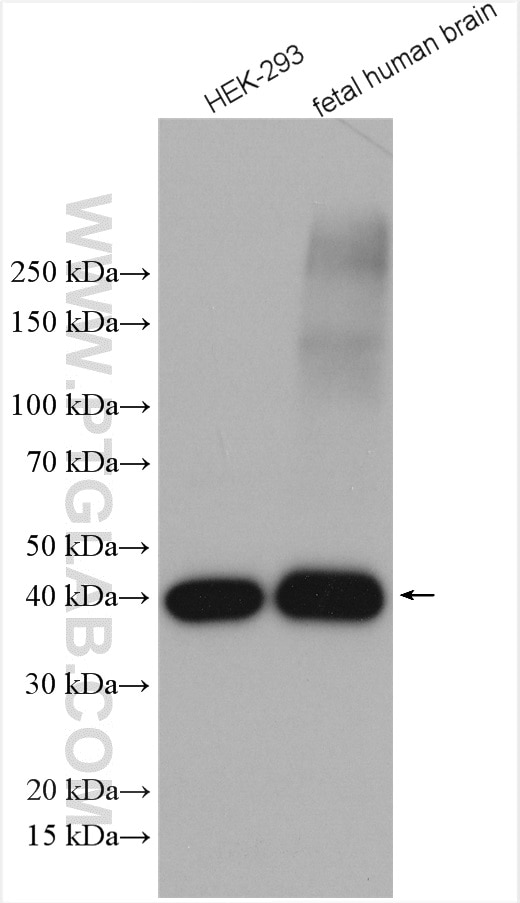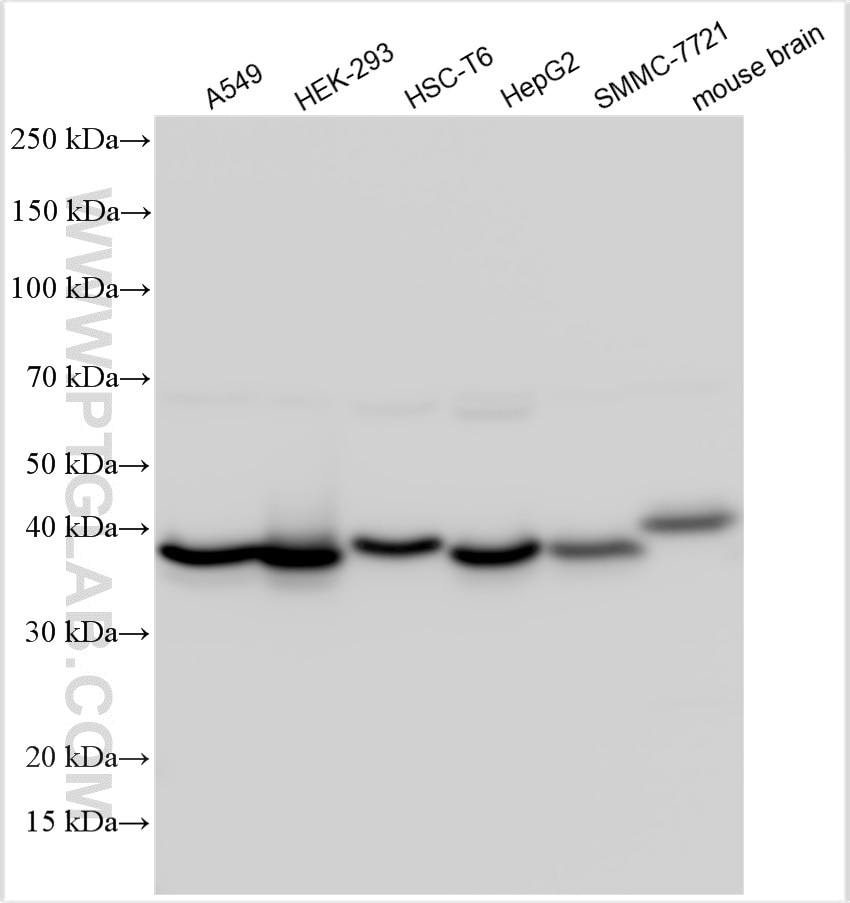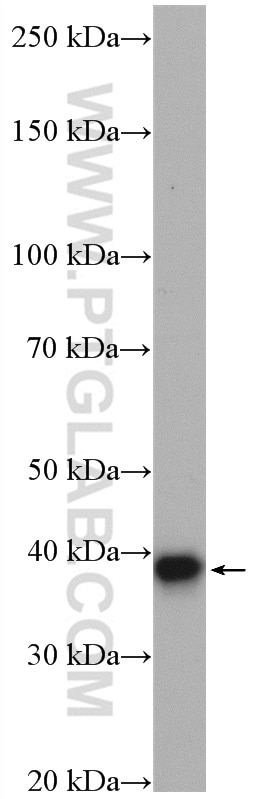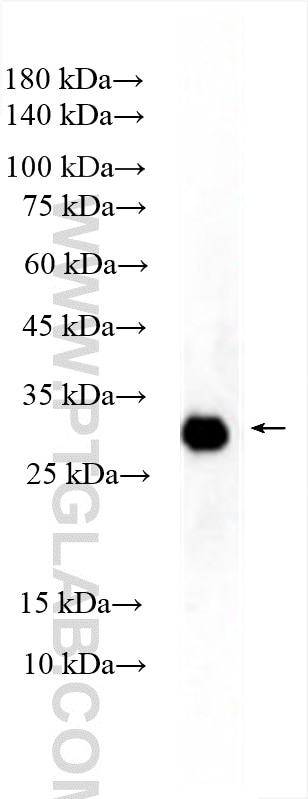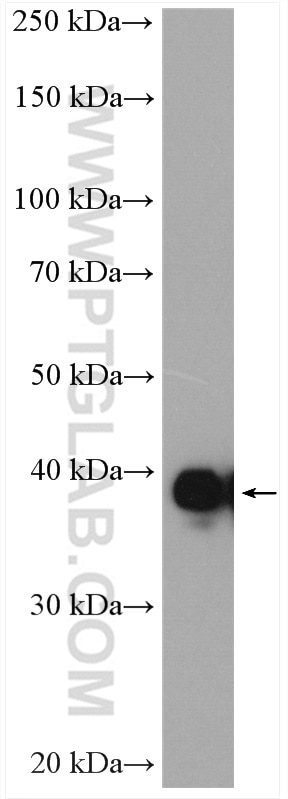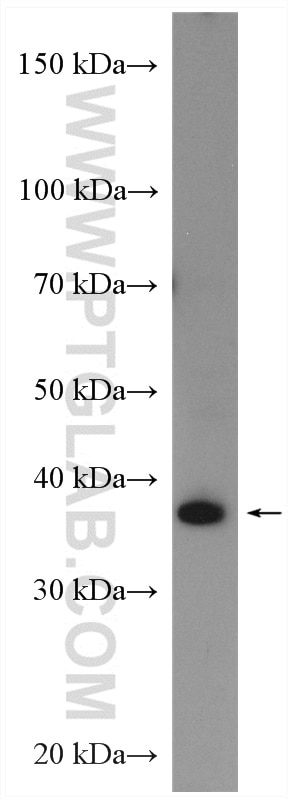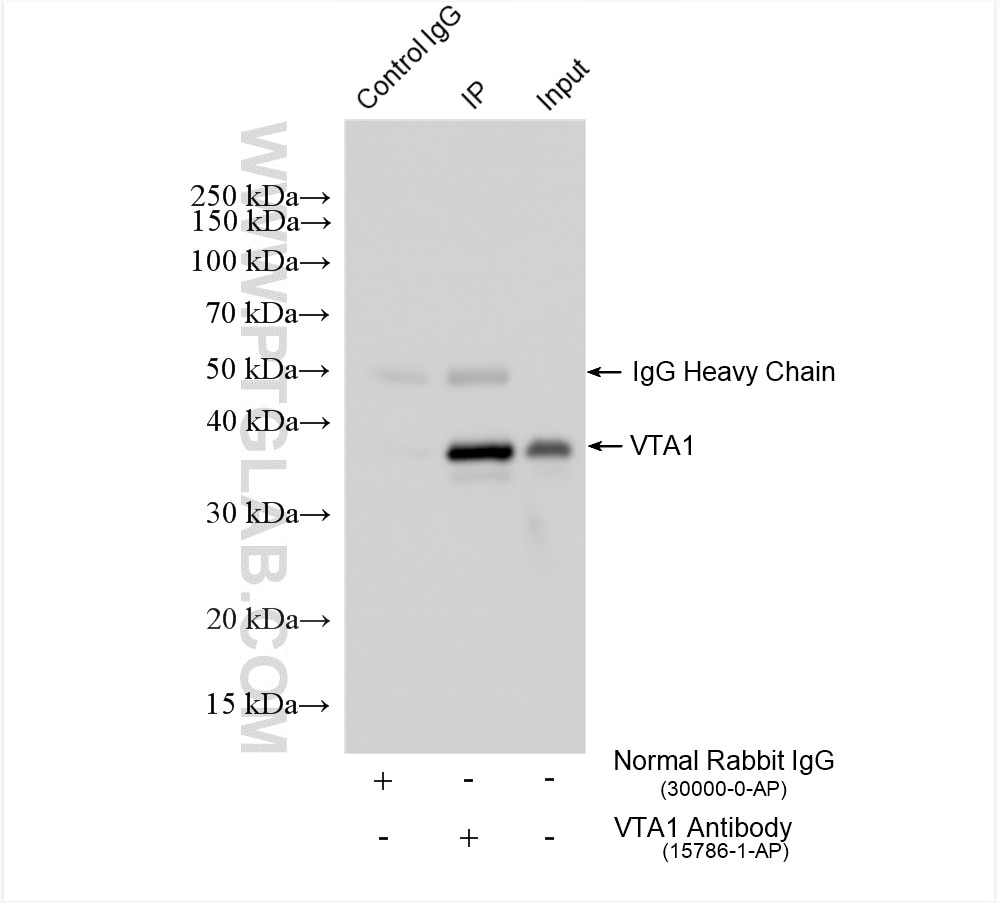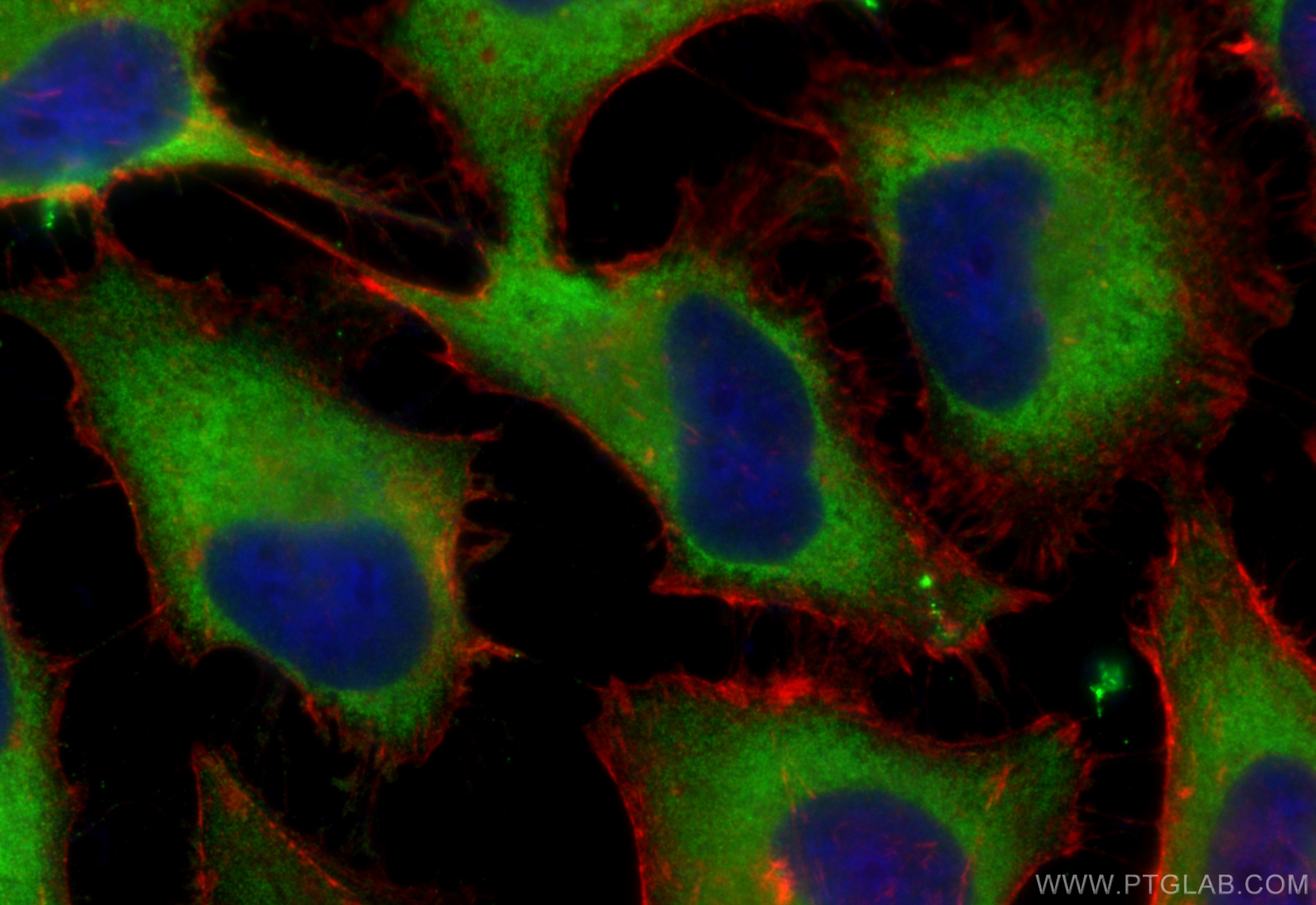Validation Data Gallery
Tested Applications
| Positive WB detected in | HEK-293 cells, A549 cells, HepG2 cells, human urine sample, K-562 cells, rat brain tissue, HSC-T6 cells, SMMC-7721 cells, mouse brain tissue, fetal human brain tissue |
| Positive IP detected in | HEK-293 cells |
| Positive IF/ICC detected in | HeLa cells |
Recommended dilution
| Application | Dilution |
|---|---|
| Western Blot (WB) | WB : 1:2000-1:16000 |
| Immunoprecipitation (IP) | IP : 0.5-4.0 ug for 1.0-3.0 mg of total protein lysate |
| Immunofluorescence (IF)/ICC | IF/ICC : 1:200-1:800 |
| It is recommended that this reagent should be titrated in each testing system to obtain optimal results. | |
| Sample-dependent, Check data in validation data gallery. | |
Published Applications
| WB | See 1 publications below |
Product Information
15786-1-AP targets VTA1 in WB, IF/ICC, IP, ELISA applications and shows reactivity with human, mouse, rat samples.
| Tested Reactivity | human, mouse, rat |
| Cited Reactivity | human |
| Host / Isotype | Rabbit / IgG |
| Class | Polyclonal |
| Type | Antibody |
| Immunogen | VTA1 fusion protein Ag8485 相同性解析による交差性が予測される生物種 |
| Full Name | Vps20-associated 1 homolog (S. cerevisiae) |
| Calculated molecular weight | 307 aa, 34 kDa |
| Observed molecular weight | 34 kDa |
| GenBank accession number | BC006989 |
| Gene Symbol | VTA1 |
| Gene ID (NCBI) | 51534 |
| RRID | AB_2288524 |
| Conjugate | Unconjugated |
| Form | Liquid |
| Purification Method | Antigen affinity purification |
| UNIPROT ID | Q9NP79 |
| Storage Buffer | PBS with 0.02% sodium azide and 50% glycerol , pH 7.3 |
| Storage Conditions | Store at -20°C. Stable for one year after shipment. Aliquoting is unnecessary for -20oC storage. |
Protocols
| Product Specific Protocols | |
|---|---|
| WB protocol for VTA1 antibody 15786-1-AP | Download protocol |
| IF protocol for VTA1 antibody 15786-1-AP | Download protocol |
| IP protocol for VTA1 antibody 15786-1-AP | Download protocol |
| Standard Protocols | |
|---|---|
| Click here to view our Standard Protocols |
Publications
| Species | Application | Title |
|---|---|---|
Mol Cell Proteomics Proteomic analyses uncover a new function and mode of action for mDia2. |
